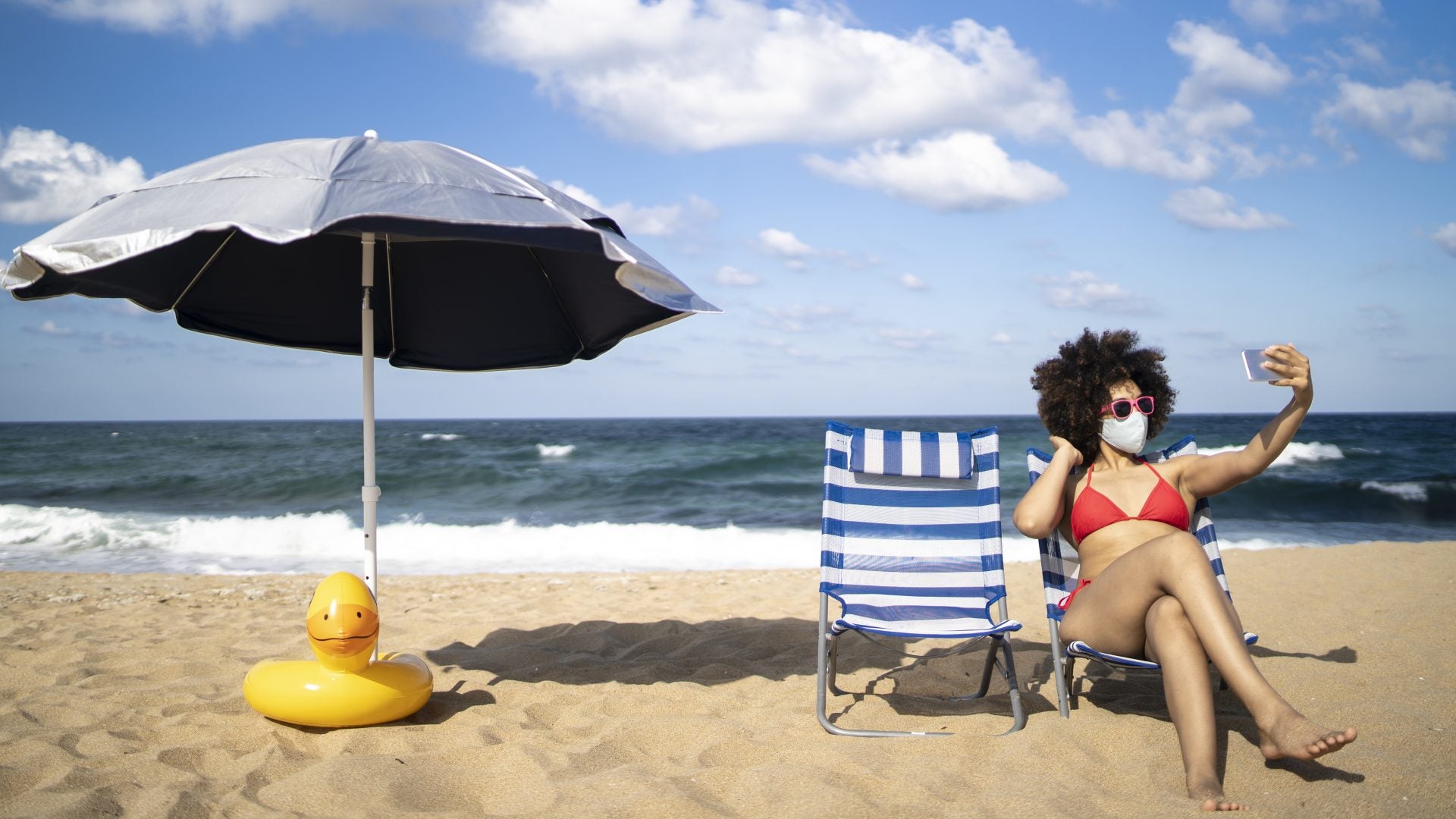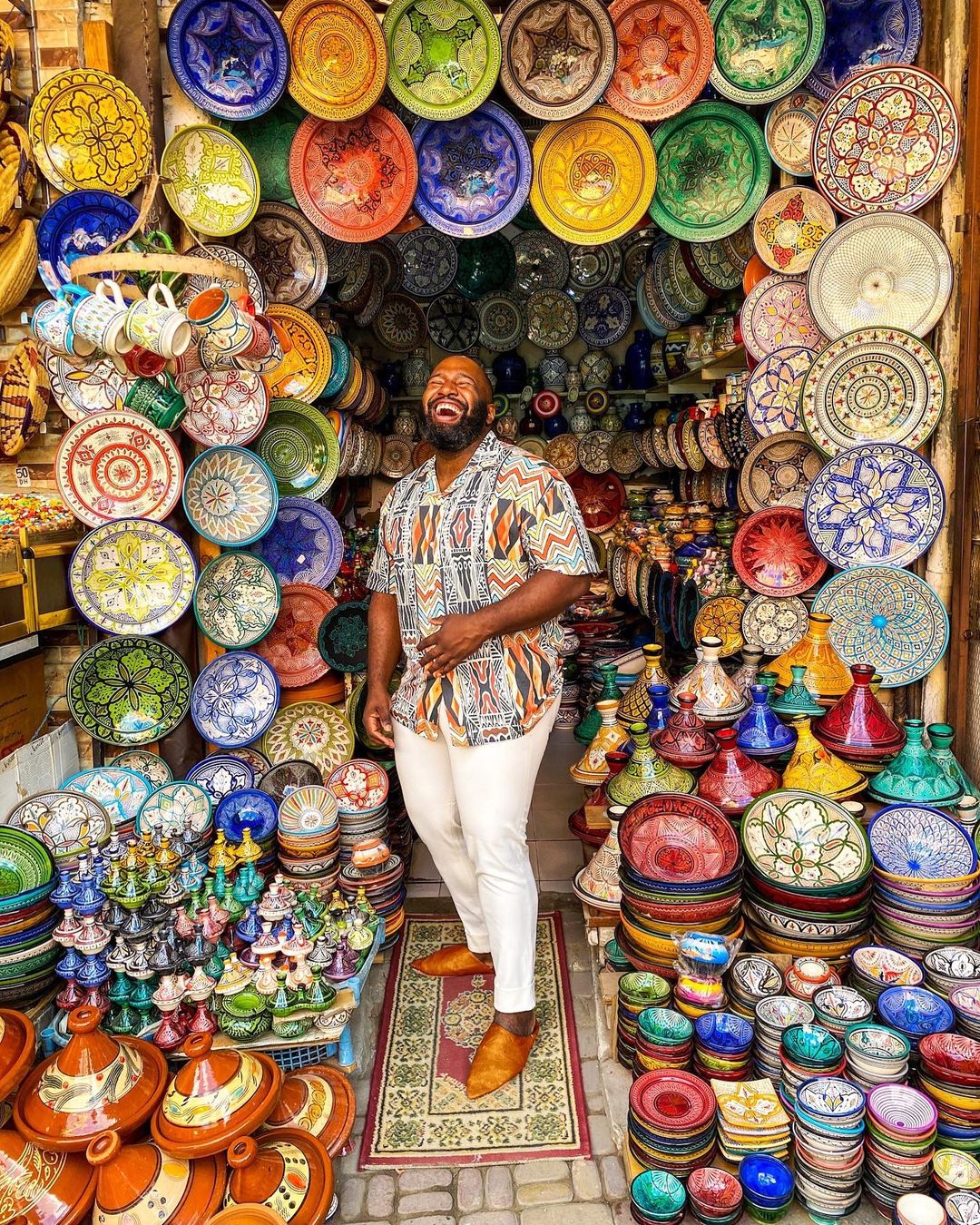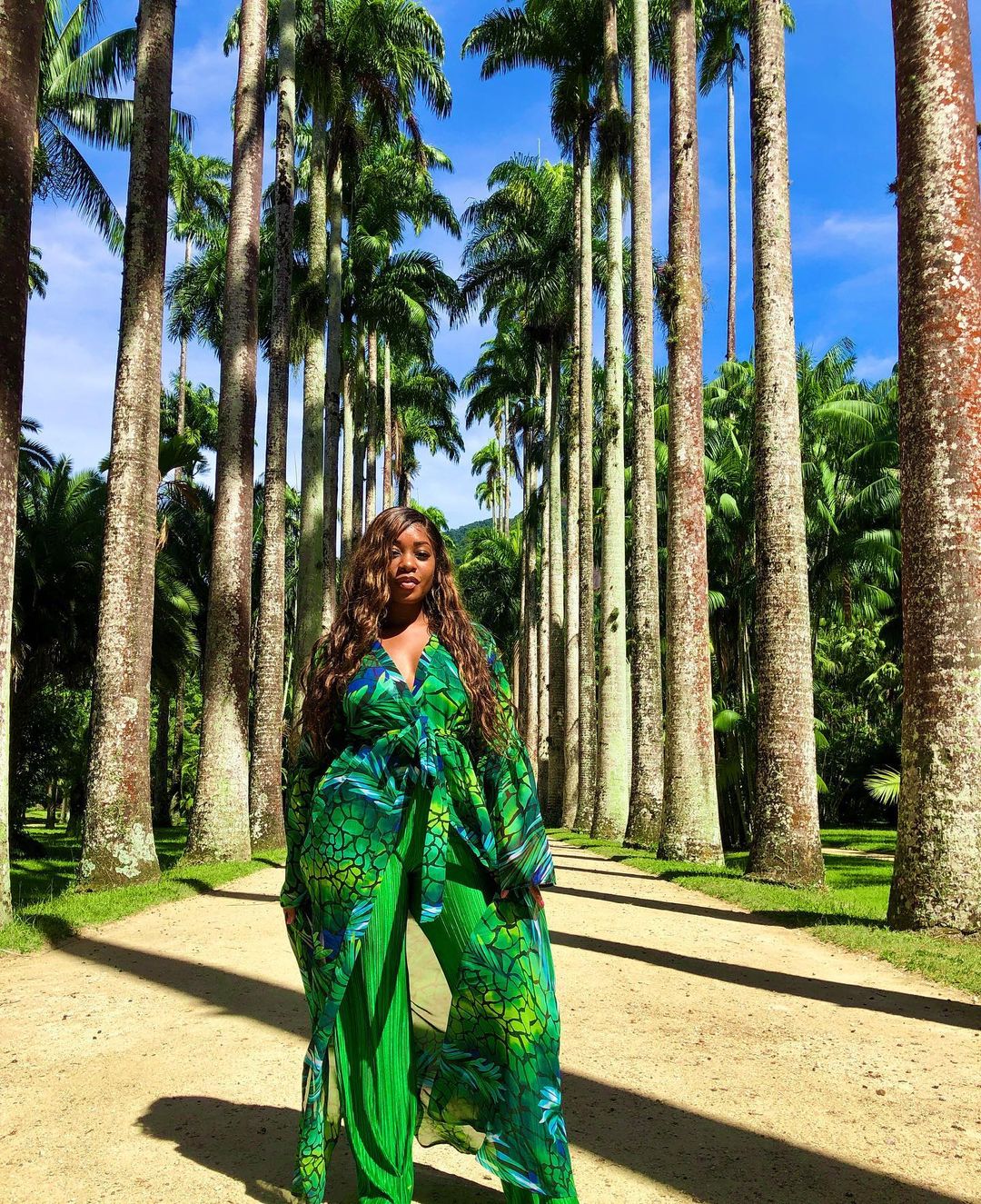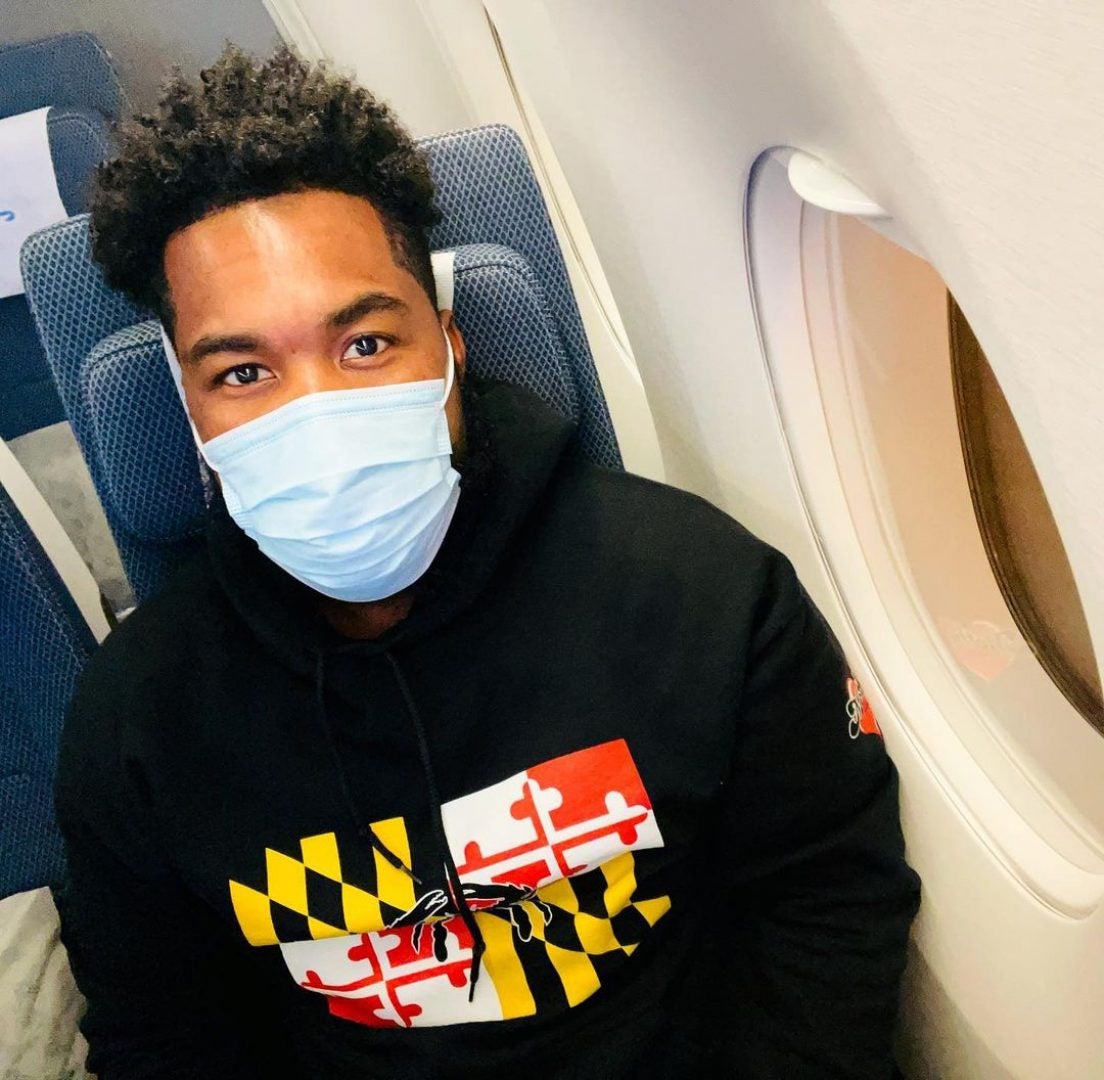
It has been over a year since the world shut down due to the onset of the coronavirus pandemic. The uncertainty has taken a physical and mental toll on many, particularly Black communities who were disproportionately impacted by COVID-19. Add to that the increased but needed efforts of the Black Lives Matter movement, coupled with the newly discovered stressors of everyday life in a pandemic from working from home to essential workers on the front line, and it should be no shock that Black people may be more exhausted than ever before.
Everyone has a different method of replenishing their energy, and for many, vacation is a priority method of doing so — or at least it was before the pandemic put a full stop to that too. There are only a handful of countries that are currently open to United States citizens visiting, but with vaccinations available for select groups in the US and available to the masses by May 1, things look a little less bleak.
When talks of the vaccine availability began last year, there was no shortage of think pieces, debates and social media frenzy as experts tried their best to explain why the vaccines were safe and reliable. With or without the vaccine, some people have resumed travel for business and leisure, while others remain unsure. Though many groups of people have uncertainty around of the vaccine, there is fraught skepticism within the Black community. Some travelers are frozen in fear, while others move in the face of it. World traveler Jon Roberts got his first dose of the vaccine in February 2021 while volunteering at a testing site, but he resumed traveling prior to getting the shot. “I actually moved to Mexico during the pandemic and still managed to visit six countries before I was vaccinated.” In fact, Robert, who was furloughed from his hotel job because of the pandemic, actually went on to co-launch one of the most in demand yacht companies in Tulum today.

Shakeemah Smith, travel influencer and creator of Travel Like a Bawse is not so sure about the vaccine. She shares her apprehension, “My concern about the vaccine is long term side effects. The vaccine was created so fast and because of the US’ history of medically abusing people of color, I’m a little suspicious. I still plan to travel without the vaccine to any country that doesn’t require vaccinations. I’m not sure if I’ll take the vaccine down the line.”

Smith is surely not the only one who is still suspicious of the vaccination. However, Dr. Nadeen White, M.D. , Pediatric Hospital Medicine, reassures that the vaccine was actually not rushed at all. “That mRNA technology is not new. It has been studied for years and so has a vaccine for Coronavirus since the first SARS outbreak in 2003,” Dr. White says. “Black scientists, Black doctors and Black volunteers were part of the studies conducted for the COVID-19 vaccines. There were no hospitalizations or deaths in the Pfizer, Moderna or Johnson & Johnson COVID-19 studies. They were all deemed safe for EUA-Emergency use authorization by the FDA.”
Many people have questions about variants of the virus and how the vaccine aids against that. Dr. White continues, “There will be new variants and more than likely boosters to current vaccines will be needed. In order to achieve herd immunity, at least 70% of the population needs to be vaccinated. This will take a community and worldwide effort. If globetrotters want to globe-trot again, they need to keep this in mind.” Dr. White shares more about the future of the vaccine and its implications in travel in her blog post 7 Compelling Reasons to take the COVID-19 Vaccine.
Brian Oliver, another recently vaccinated world traveler and founder of non-profit organization B More See More has traveled to Florida and Puerto Rico since being vaccinated and plans to explore much more. When asked about his motivation to get the vaccine, Oliver offered, “COVID has impacted me, friends and family heavily. Soon after we learned of the virus, I witnessed nonstop death. I’ve seen friends lose parents, and also witnessed countless people battle the virus and be hospitalized. Seeing the damage it did to Black families has been tough.”

“With COVID and its terrible effect on our community I encourage everyone to get vaccinated,” Oliver continues. “I’m anxiously awaiting when I can resume traveling as I was pre-pandemic. I was used to traveling monthly so this has been a huge adjustment. I feel safer being vaccinated and can’t wait to continue to leave my mark around the world.”
Dafina M. Good, MD, Attending Physician, Pediatric Emergency Medicine was working on the frontlines during the height of the pandemic and that made it a no brainer for her to take the vaccine as soon as it was available to healthcare workers. “I feel much safer since being vaccinated. Not only do I feel protected, but I also feel I am protecting others by being vaccinated. Not only have I decreased my risk of death and serious illness from COVID-19 but studies are also showing decreased risk of vaccinated persons transmitting virus to others.”
Dr. Good continues, “I just hope Black people don’t get left behind. I hope they don’t miss their shot. Our community is disproportionately being affected. Ensuring the health of our grandparents, parents, friends and family will need to be a community effort.”
As a group of people disproportionately impacted by COVID-19, the vaccine potentially offers Black people the opportunity to better their chances of survival through the pandemic which continues to infect and kill hundreds of thousands of people worldwide. As it relates to travel, there are many talks of vaccine passports required for entry the same way that yellow fever vaccine cards are needed to enter countries where yellow fever is endemic. Some countries like the UK are already up to 50% vaccinated. Other countries like Seychelles and Iceland are requiring the COVID-19 vaccine for entry.
If the lines at airports and seat capacities on airlines are a litmus test for how ready everyone is to travel again, one could hypothesize: very ready! Vaccinated people are still encouraged to social distance, wear masks and minimize close interactions in an effort to reduce the spread of the virus.
